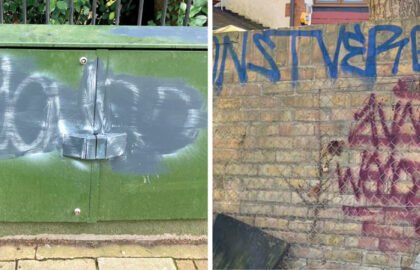From high hedges to boundary positions, Derek Inkpin from Wanstead solicitors Wiseman Lee explores some of the common disputes neighbours can find themselves engaged in
Going to court to resolve a neighbour dispute should always be a last resort. If the dispute concerns a statutory nuisance, say loud music or barking dogs, a complaint to the local council could result in a Noise Abatement Order being issued. If this does not result in a peaceful outcome, the person breaking the order could be fined up to £5,000. Noise from a factory or business could incur a penalty of up to £20,000.
If the neighbour is breaking the law by violence or harassment, the police could be contacted and, if serious enough, could involve the issue of proceedings through the Magistrates’ Court.
If you have a problem with a neighbour’s high hedge that can’t be settled informally, then a complaint to the council could be made if two or more evergreen or semi-evergreen trees or shrubs are over two metres tall and these are affecting the enjoyment of your home or garden. It is in order to trim branches or roots if they cross into your property from your neighbour’s home, but only if you trim up to the property boundary. More than this and your neighbour could take you to court. If you live in a Conservation Area, or the trees or hedges are protected by a Tree Preservation Order, you will likely need the council’s permission to trim them.
The resolution of a boundary dispute can be really tricky. The Royal Institution of Chartered Surveyors (RICS) has free advice on boundary disputes. This will involve checking the boundaries of your property by looking at the Land Registry Title Plan, but its red line only indicates the general position of the boundary and does not define it exactly. There is a Boundary Disputes Mediation Service designed by RICS and the Property Litigation Association to help neighbours resolve disputes about boundary lines, which will hopefully achieve an outcome satisfactory for all.
Where there are several issues, the appointed mediator will work with the parties to narrow the issues and help find solutions acceptable to both sides. Although an RICS mediation will cost somewhere in the region of £2,500 per party, it is a lot less expensive than litigation.
A recent boundary dispute in the county court over an encroachment issue involving nine inches of land resulted in costs being incurred on each side of about £90,000 plus VAT. Determining the position of a boundary will likely involve the instruction of surveyors, solicitors and barristers. Each case turns on its own facts after the assessment of all available material. Disputes of this nature provide a salutary tale.
Wiseman Lee is located at 9–13 Cambridge Park, Wanstead, E11 2PU. For more information, call 020 8215 1000




